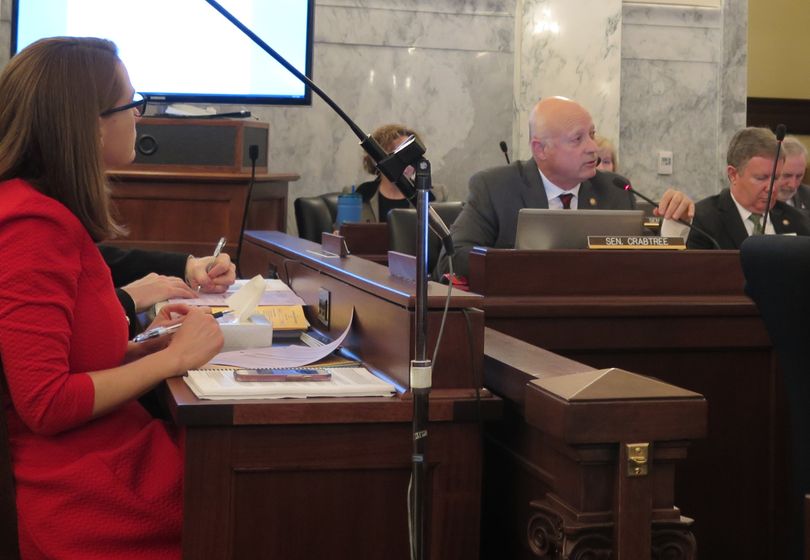With two unanimous votes, JFAC restores the $27.5M for roads - and with interest, it’s now $27,669,500

With a series of two unanimous, roll-call votes this morning, the Joint Finance-Appropriations Committee restored the $27.5 million – plus some interest – transfer to road projects that lawmakers had voted to make with half of a $55 million surplus at the end of the fiscal year 2017. A drafting error in SB 1206, the big, complex road-funding bill that lawmakers passed on the final day of last year’s legislative session, prevented the transfer from occurring automatically, and Gov. Butch Otter didn’t include it in his budget recommendation, due to his longstanding opposition to using general funds for roads. He prefers the state’s traditional approach of relying on user fees – include gas taxes and vehicle registration fees – to fund roads.
Sen. Carl Crabtree, R-Grangeville, made both motions this morning; Rep. Sage Dixon, R-Ponderay, seconded both of them.
Paul Headlee, legislative budget director, told the joint committee, “SB 1206 did quite a few things. It reauthorized GARVEE bonding authority, it modified the distribution from the Strategic Initiatives Program to 60 percent state and 40 percent local, it extended the surplus eliminator for two years, it created the congestion mitigation fund, and redirected 1 percent of sales tax ($15 million) to the congestion mitigation fund.”
The bill included multiple emergency clauses, sunsets and waivers of both. The drafting error was in Section 17 of the bill, the emergency clause, which cited Section 13 of the bill, but also should have cited Section 8.
“It should have read, ‘Sections 8 and 13,’” Headlee said. “That is the error that prevented that transfer from happening at the end of 2017. So no funds have been lost, no funds have been miscalculated. Those funds are still in the same place they were in the general fund ... and this committee has the authority to make that transfer.”
Rep. Maxine Bell, R-Jerome, the JFAC co-chair, said, “We make so few mistakes that when we finally make a glitch in a bill, and it was our mistake, it’s amazing how one little tiny mistake can keep you from getting $28 million. But we’ll rectify that.”
She added, “We’ve been chewing on this for two weeks to make sure we did the right thing.”
But when the joint committee went to vote on the motion, its computerized voting system wasn’t working. Bell chuckled. “Wouldn’t you know it would happen when this motion is on the floor,” she said. The votes were conducted in old-fashioned, verbal roll calls.
When the 19-0 votes were concluded and recorded, Bell announced, “The majority having voted in the affirmative, the motion has passed, and without objection will carry a do-pass recommendation.”
The measure is a supplemental appropriation bill that still will need passage in both houses and the governor’s signature to become law, but budget bills rarely change once they’re approved by the joint committee.
